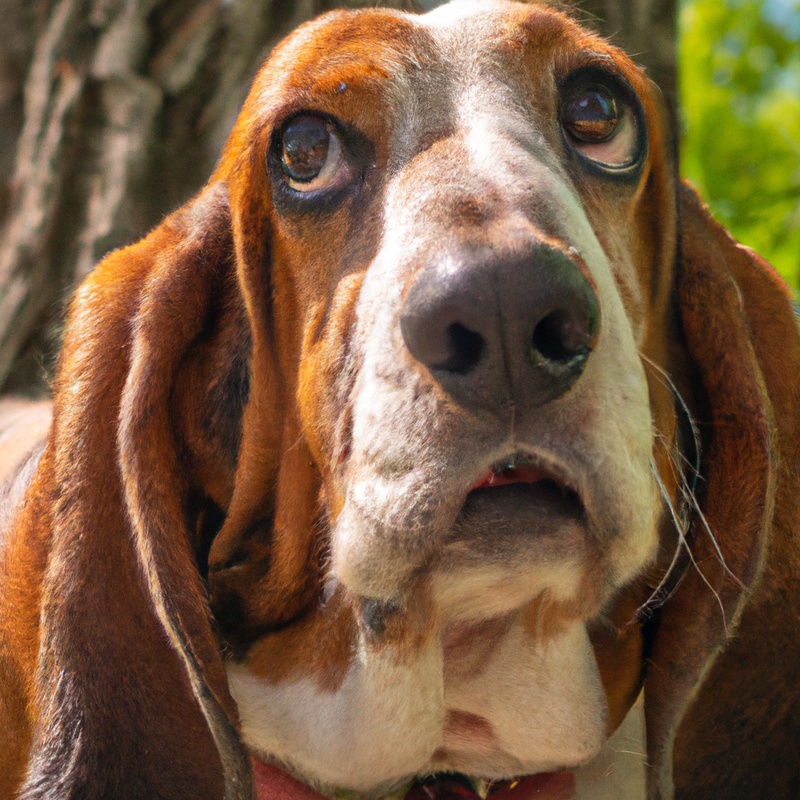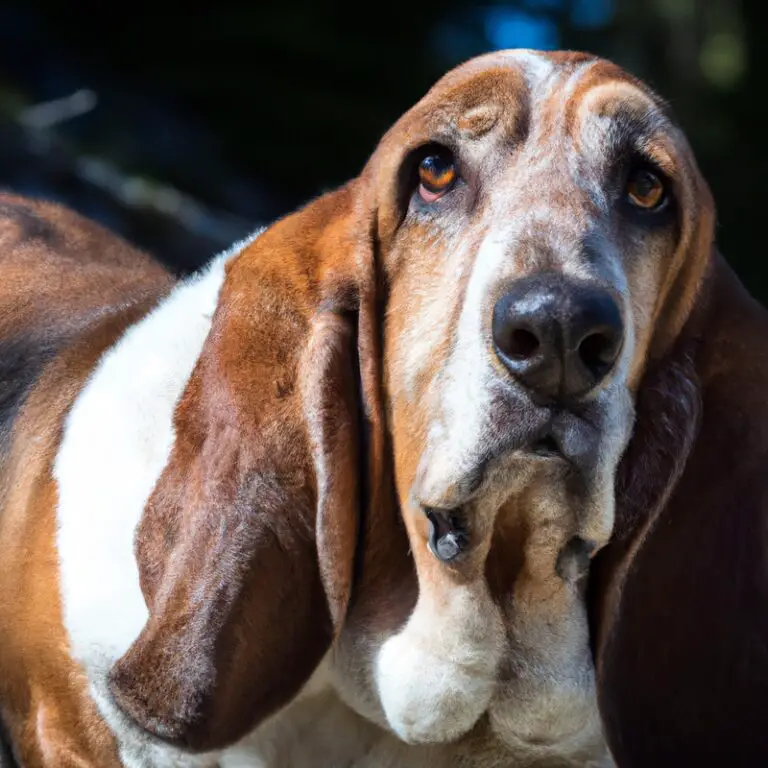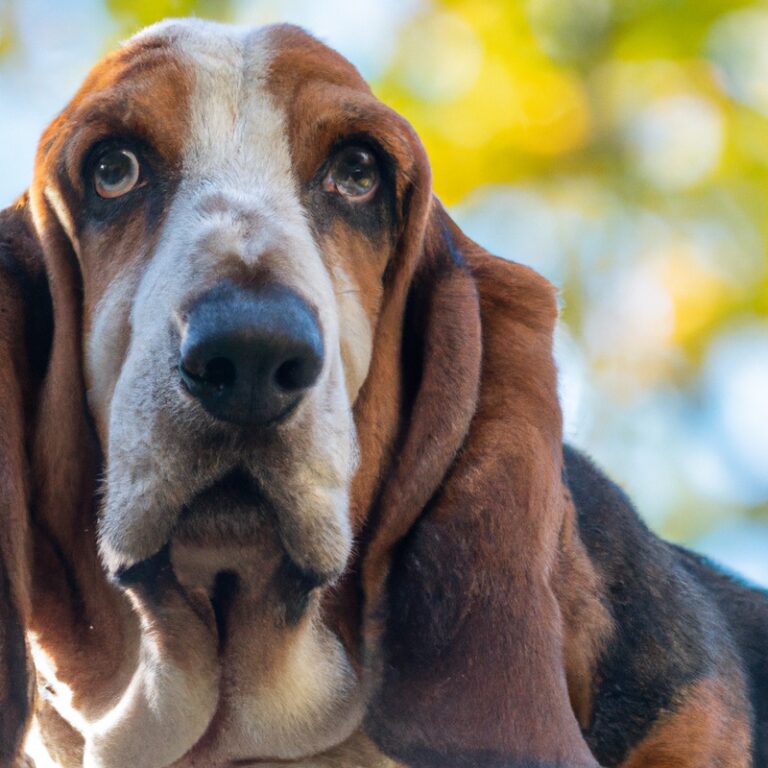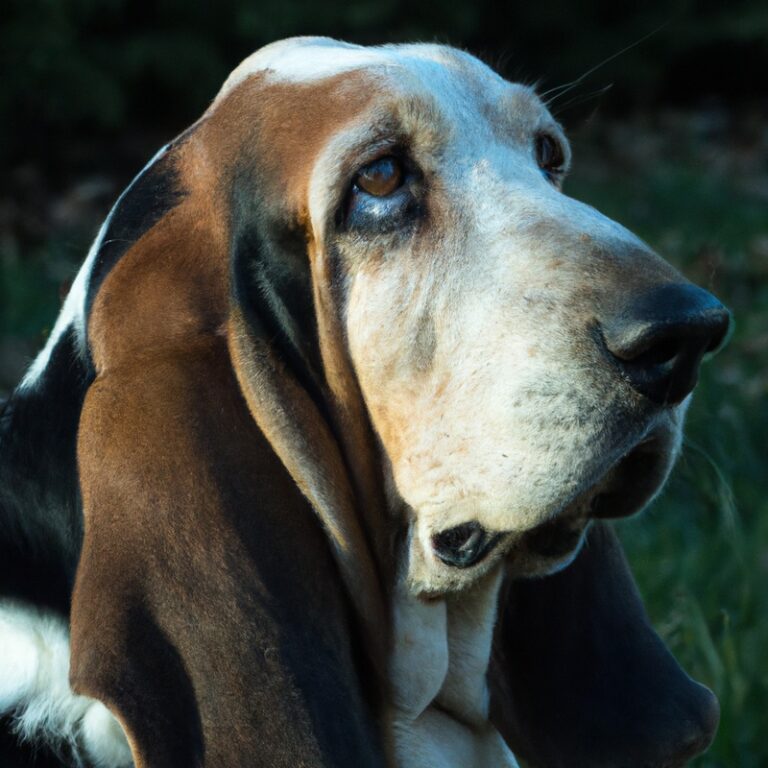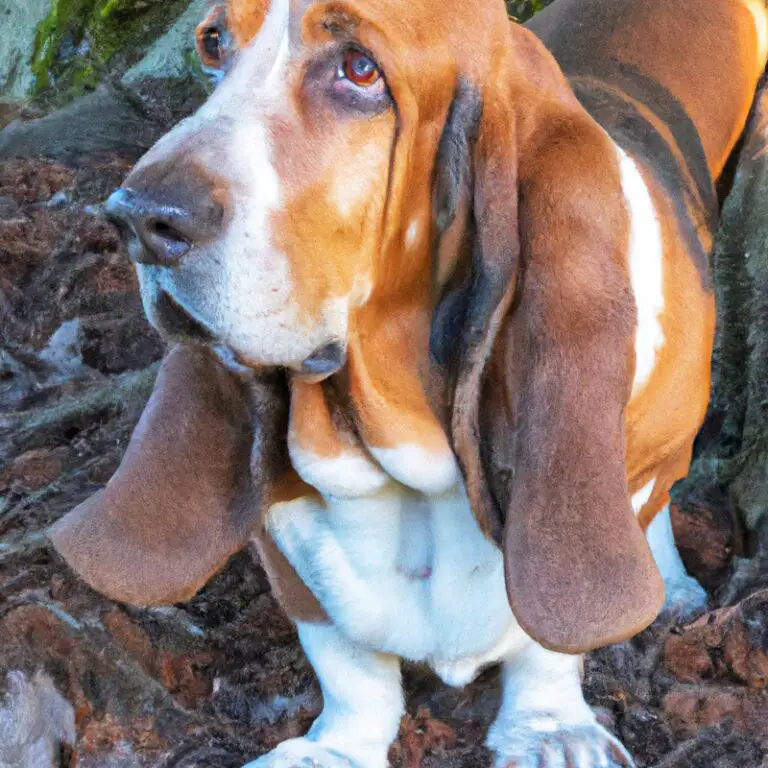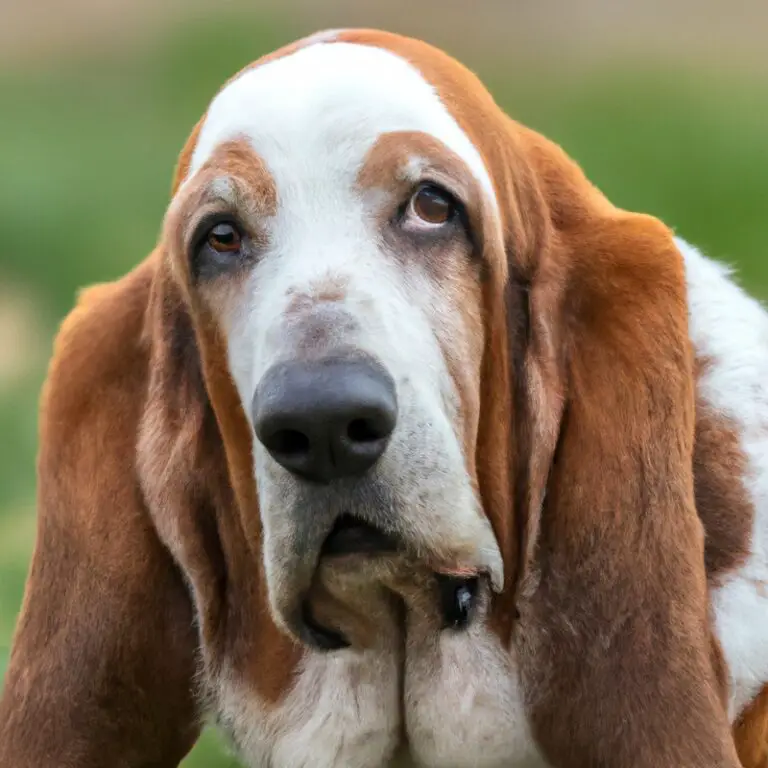Are Basset Hounds Known For Being Good With Amphibians?
Key Takeaways:
- Basset Hounds have a natural instinct to chase and hunt, making them poor companions for amphibians.
- Their scent-driven nature makes it difficult for Basset Hounds to resist the temptation of pursuing amphibians.
- Basset Hounds may unintentionally harm amphibians due to their heavy build and low gait.
- It is important to monitor interactions between Basset Hounds and amphibians to ensure the safety of both parties.
Have you ever wondered if Basset Hounds make good companions for amphibians? Well, you’re not alone! As a long-time Basset Hound owner and enthusiast, I’ve had my fair share of experiences with these lovable, droopy-eared pooches.
In this article, I’ll dive deep into the temperament of Basset Hounds, exploring how their curious nature might affect their interactions with amphibians.
We’ll also touch on the potential challenges and offer some tips on safely introducing Basset Hounds to our slippery, amphibious friends. So, grab a seat and let’s unravel the secrets of Basset Hound-amphibian connections!
| Question | Answer |
|---|---|
| Are Basset Hounds known for being good with amphibians? | No, Basset Hounds are not known for being good with amphibians. |
Basset Hounds and their temperament
Description of typical Basset Hound temperament
Basset Hounds are known for their friendly and laid-back temperament. They are generally gentle and affectionate dogs, and they love to spend time with their family members.
Bassets are also known to be quite relaxed and easygoing, making them great companions for both adults and children.
They have a strong sense of smell and can be quite stubborn at times, so early socialization and training are important to help them become well-rounded and obedient pets. Overall, Basset Hounds are known for their sweet nature and make wonderful family pets.
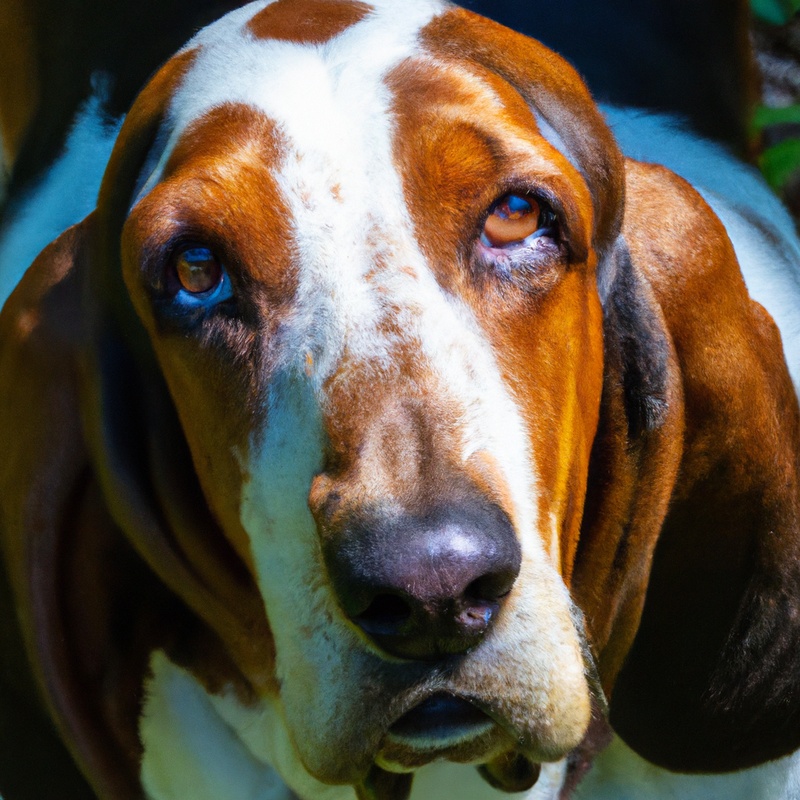
Factors influencing a Basset Hound’s temperament
A Basset Hound’s temperament can be influenced by several factors.
Genetics play a significant role, as certain traits are inherited from their parents.
Early socialization and proper training can also shape a Basset Hound’s temperament.
Positive experiences and exposure to different environments, people, and animals can help them become well-rounded and friendly.
Consistency in routine and positive reinforcement training methods are crucial.
Additionally, the overall health and well-being of a Basset Hound can impact their temperament.
Regular exercise, a balanced diet, and proper veterinary care are important for their emotional stability.
Interaction between Basset Hounds and amphibians
Basset Hounds’ curiosity towards amphibians
Basset Hounds are known for their curious nature, and this extends to amphibians as well. They may be intrigued by the sight, sound, and movements of frogs, toads, and other amphibians.
It is important to supervise any interaction between your Basset Hound and amphibians to ensure the safety of both.
The Hound’s curiosity may lead it to chase or try to play with the amphibians, so caution is necessary. Proper training and teaching boundaries can help manage their curiosity and create a safe environment for everyone involved.
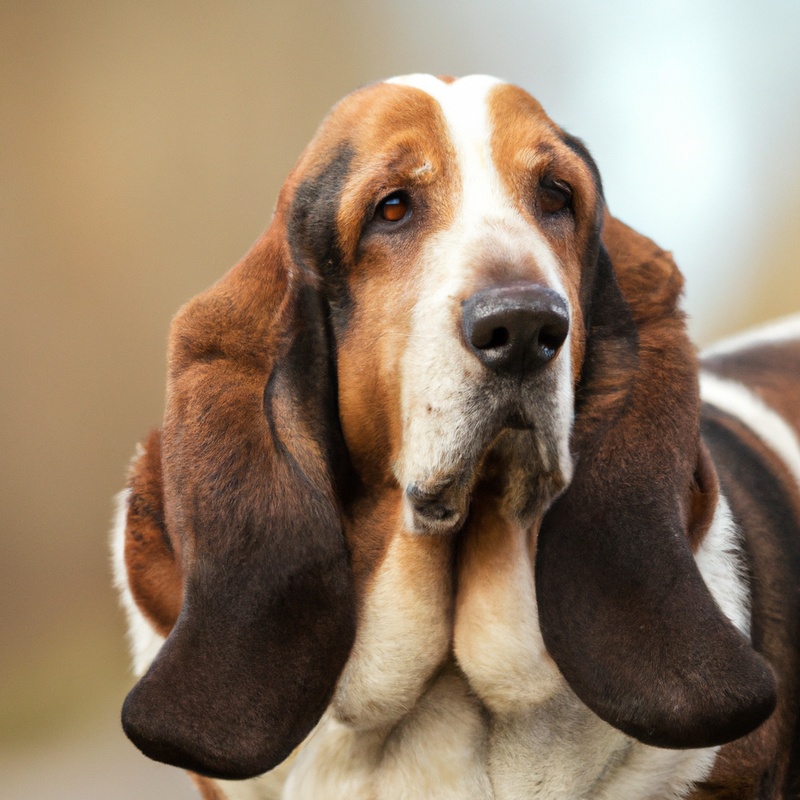
Possible challenges in keeping Basset Hounds with amphibians
Keeping Basset Hounds with amphibians can present a few challenges. Basset Hounds have a strong sense of smell and a natural hunting instinct, which can make them curious about amphibians and potentially pose a threat to their well-being.
Additionally, Basset Hounds are prone to drooling, which could be harmful to certain amphibians if ingested.
Proper supervision and control are essential to ensure the safety of both the Basset Hound and the amphibians. It is important to create separate and secure spaces for each pet to reduce the risk of any harmful interactions.
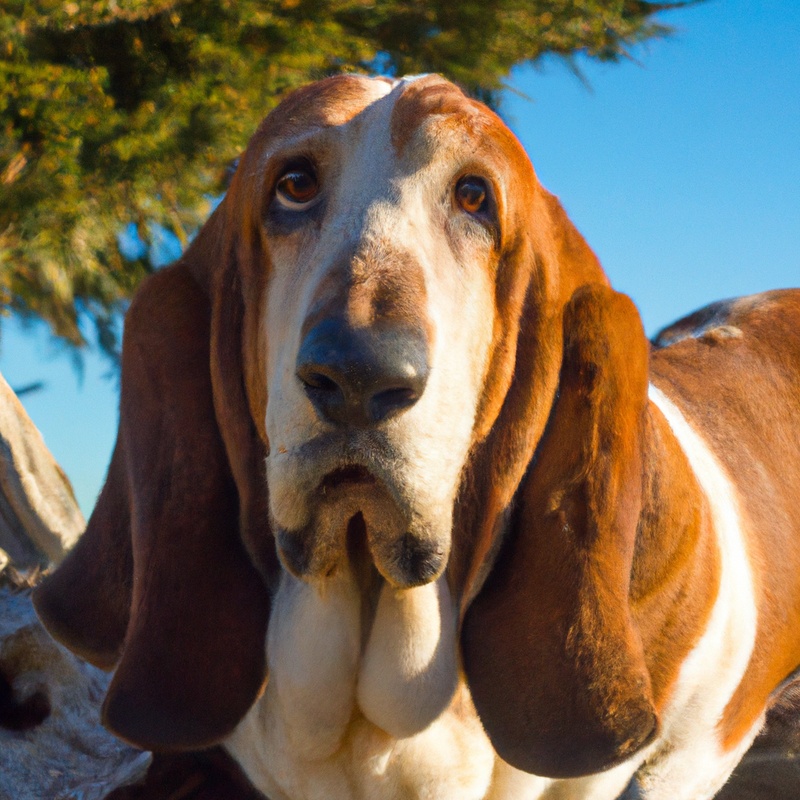
Tips for safely introducing Basset Hounds to amphibians
When introducing Basset Hounds to amphibians, it’s important to prioritize the safety and well-being of both the dog and the amphibian. Here are some tips to ensure a smooth and safe introduction:
- Supervision is key: Always closely supervise any interactions between your Basset Hound and amphibians. This will allow you to intervene if necessary and prevent any harm.
- Gradual introductions: Start with short and controlled introductions, gradually increasing the time spent together. This will help both the dog and the amphibian adjust to each other’s presence.
- Positive reinforcement: Use positive reinforcement techniques to reward your Basset Hound for calm and appropriate behavior around the amphibians. This will reinforce positive associations and discourage any undesirable behaviors.
- Secure enclosure: Ensure that the amphibians are housed in a secure enclosure that your Basset Hound cannot access. This will prevent any accidental harm or escape.
- Knowledge of amphibian care: Educate yourself on the specific needs and care requirements of the amphibians you have. This will help you create a suitable environment and provide proper care for them.
Remember, every dog and amphibian is different, so it’s important to observe their individual reactions and adjust your approach accordingly. Your veterinarian or a professional trainer can provide further guidance tailored to your specific situation.
Basset Hounds and other pets
Basset Hounds’ general compatibility with other pets
Basset Hounds generally have a friendly and easygoing nature, making them compatible with other pets. Their laid-back temperament often allows them to get along well with cats, other dogs, and even smaller animals.
However, it is important to consider the individual personalities of both the Basset Hound and the other pet.
It’s always a good idea to supervise their interactions initially and provide a gradual introduction. Proper socialization, training, and positive reinforcement can help ensure a harmonious relationship between your Basset Hound and other pets.
Specific considerations when keeping Basset Hounds with amphibians
When keeping Basset Hounds with amphibians, there are a few specific considerations to keep in mind.
- Supervision: It is important to closely supervise any interactions between your Basset Hound and the amphibians. Basset Hounds have a strong prey drive, so they may see amphibians as something to chase or play with.
- Safety: Ensure that your amphibians are kept in secure enclosures where your Basset Hound cannot access them. This will prevent any accidental injury to the amphibians, as well as ensure that they are not ingested by your dog.
- Training: Basic obedience training for your Basset Hound is essential when it comes to their interactions with other animals. Teach them commands such as “leave it” or “stay” to help manage their behavior around amphibians.
- Introduction: When introducing your Basset Hound to amphibians, do so in a controlled and gradual manner. Allow your dog to sniff and observe the amphibians from a safe distance, rewarding calm behavior.
Remember, every dog is different, so it is important to assess your individual Basset Hound’s behavior and comfort level when it comes to interacting with amphibians.
Precautions and training for Basset Hounds around amphibians
Importance of supervision and control
Supervision and control are crucial when it comes to keeping Basset Hounds around amphibians. It is important to supervise their interactions to ensure the safety of both the dog and the amphibians.
Basset Hounds have a strong hunting instinct, so keeping them on a leash or in a secure area is essential.
Additionally, training them to have a reliable recall and basic obedience commands can help maintain control in situations where amphibians are present. Remember to always be vigilant and proactive in supervising and controlling your Basset Hound around amphibians to prevent any potential harm.
Basic obedience training for Basset Hounds
Basic obedience training is essential for Basset Hounds to ensure they are well-behaved and obedient pets.
It helps establish a clear line of communication between you and your dog and promotes good behavior.
Some important obedience commands to teach your Basset Hound include sit, stay, come, and leash training.
Consistency and positive reinforcement are key when training Basset Hounds.
Start training early and be patient, as these dogs may have a stubborn streak.
With regular training sessions, your Basset Hound will become a well-behaved companion.
Final Verdict
While Basset Hounds may have a natural curiosity towards amphibians, it is important to approach the interaction with caution. The temperament of a Basset Hound plays a significant role in their behavior around amphibians, and factors such as socialization and training can influence this.
Basset Hounds generally have good compatibility with other pets, but specific considerations need to be taken when keeping them with amphibians.
Precautions such as supervision, control, and basic obedience training can help ensure the safety of both your Basset Hound and the amphibians.

